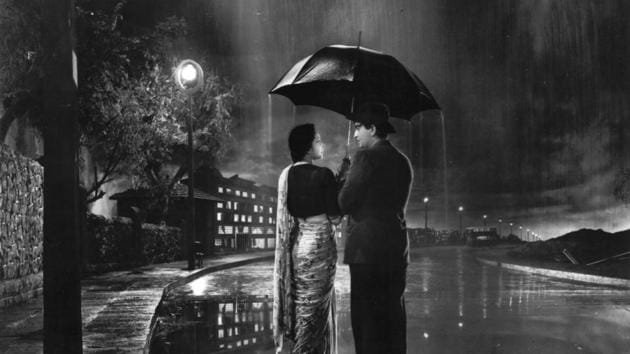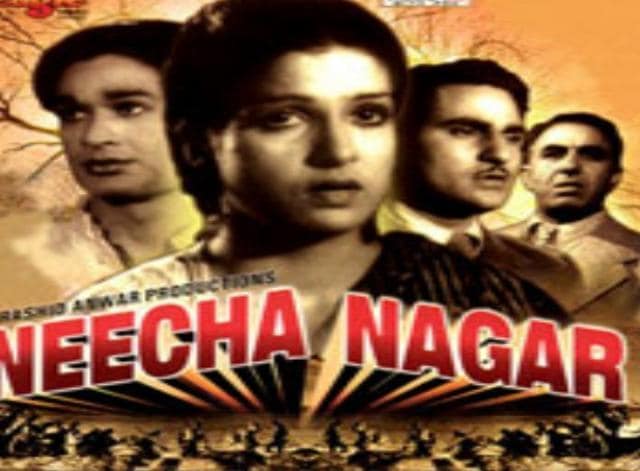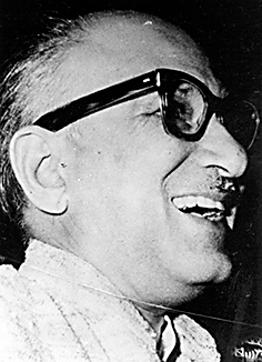The legacy of Khwaja Ahmad Abbas
A KA Abbas retrospective at the Habitat Film Festival, currently on in Delhi, takes stock of how he portrayed the common man’s encounter with the city.
When Sukhpreet Kahlon, a film scholar, began curating a retrospective of acclaimed film director and screenwriter Khwaja Ahmad Abbas ‘ films she knew she wanted to pick a theme that would resonate with today’s audience.

So she chose five films of Abbas that explored the city and urban living for the retrospective titled ‘The City as a Metaphor’ — Neecha Nagar, based on Maxim Gorky’s Lower Depths, is a tale of resistance as the rich try to cheat the poor out of their land; Shree 420 features a Chaplin-esque Raj Kapoor who plays a poor orphan in big, bad and rich Bombay; Jaagte Raho follows a thirsty peasant who is chased around the city because he is mistaken for a thief; Char Dil Char Rahen tells three different love stories that are connected by a crossroads that is under construction; and Bambai Raat Ki Baahon Mein is a crime thriller.
The fact that he wrote the screenplays for the first three and directed the last two is a nod to Abbas’ abilities as a writer. He was a prolific one at that: he penned books, short stories and one of the longest-running newspaper columns, Last Page. The retrospective — a collaboration between the India Habitat Centre and the Khwaja Ahmad Abbas Memorial Trust — is part of the 12th Habitat Film Festival which kicked off on May 19.

Is it the corrupting nature of the city? Is it the luring nature of the city?” asks Kahlon, citing some of the ways in which Abbas’ films explore people’s encounters with the city. But, more important, she explains, was his overarching characteristic concern for inequality and the visceral manner in which he portrayed it on screen.
“I think it’s his engagement with the common man that makes him relevant even today, “ says Kahlon. “It’s the common man. It’s always the common man.” Kahlon was keen on including Shehar Aur Sapna, Abbas’ National Award Winner from 1963 about a young couple struggling to find a home in a Bombay swiftly on the rise. But they couldn’t find a print of the movie.
“That’s a fantastic film,” she says wistfully. This is just one of several of Abbas’ films that are lost, says Kahlon, underscoring “the dire need” for better preservation of Indian cinema. “If prints are not available how are people going to access them (these films)? How are people going to watch them?” asks Kahlon.
Given its theme, the retrospective does not include some of his most iconic films, including his 1943 directorial debut, Dharti Ke Lal, which is an unflinching portrayal of the devastation wrought by the Bengal famine. Also absent is Saat Hindustani, a film about the fight to liberate Goa from Portuguese rule, in which Abbas introduced Amitabh Bachchan to India.

But the festival offers an opportunity for people to reacquaint themselves with some of Abbas’ seminal work or discover it for the first time. And, most of all, to go beyond it to explore his versatile career from filmmaker to journalist; his progressive cinema, defined by both authenticity and sensitivity; and his enduring legacy.
“You go beyond the movies,” says Vidyun Singh, Director, Programmes, at the India Habitat Centre, referring to the interactions with filmmakers and film historians. “It is a more intense cinema experience.”
You will find further details about the retrospective as well as the festival’s schedule here.
What: 12th Habitat Film Festival
When: May 19 to May 28, 2017
Where: Multiple venues, India Habitat Centre, Lodhi Road
Nearest metro station: JLN Stadium
Tickets: Entry is free on a first-come-first-serve-basis





